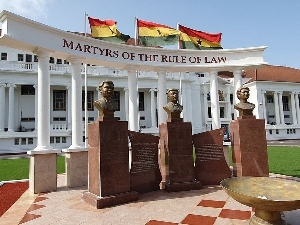Opinions of Wednesday, 18 January 2023
Columnist: Sekyi-Brown Reginald
Artificial logarithms: Entropy or our salvation?
As has been the catholic response (pun intended) whenever technological advancement rivals or rather I say threatens human agency; the advent of ChatGPT has since its launch sent seismic waves in the academy.
Whilst hedonism runs amok in the realms of especially students who perceive this paradigm shift as salvation to their deluge of coursework - experts the world over keep splitting hairs on the ramifications of this technology which some argue threatens the very foundations of independent thinking.
Of course, this raises some deontological and to some extent consequentialist questions but I will relegate this to the philosophers to further cogitate on the neural rationale for this technology. We have been here before. A pilgrimage into the not-so-distant past will unveil the agita the world felt when search engines gained currency. Deadening the stimuli we felt in libraries and archives as our salivary glands made contact with books and documents - our inertia to change was evident yet again.
The world has been so used to the formulaic human agency that the intervention of machines - in this case, Artificial intelligence could be touted as an intrusion. Even though AI is largely a product of human intellect at base - the bullet train evolution is already pricking the definitive value of what constitutes human beings.
In the Structure of Scientific Revolutions - Thomas Kuhn eloquently intimated that the sphere of our existence is driven by paradigms. Paradigms constitute the praxis, theories, laws, maxims, concepts and methods that dictate how a discipline is practiced or existence is measured.
The perturbation of this paradigm is foreshadowed by three stages. What Kuhn regarded as Pre- paradigmatic phase, normal science, crisis and finally the gestation of the Scientific revolution in this case AI.
Earlier this week, the startup DoNotPay - the world’s first robot lawyer - indicated its intention to take on two cases on speeding tickets in court. The Founder and Chief Executive officer - Joshua Browder remarked that: “The law is almost like code and language combined, so it's the perfect use case for AI. I think that this is the biggest potential for GPT and large language model technology."
Given the entropy set in motion by ChatGPT and other AI technologies- is this the train that the global south needs to close the Dahomey gap in technological advancement or this further exacerbates the ongoing epistemic suicide?
Given the economic transformation of the South Korean economy from a largely agrarian to an IT-driven national development strategy, is this the salvation Ghana has been waiting for?













